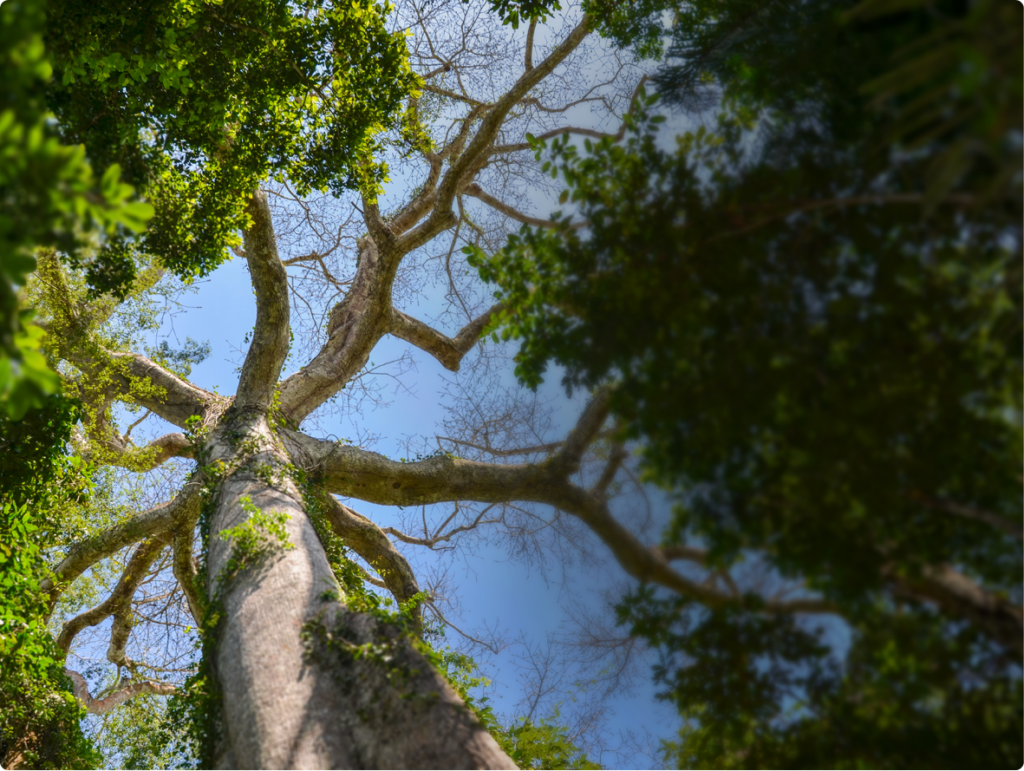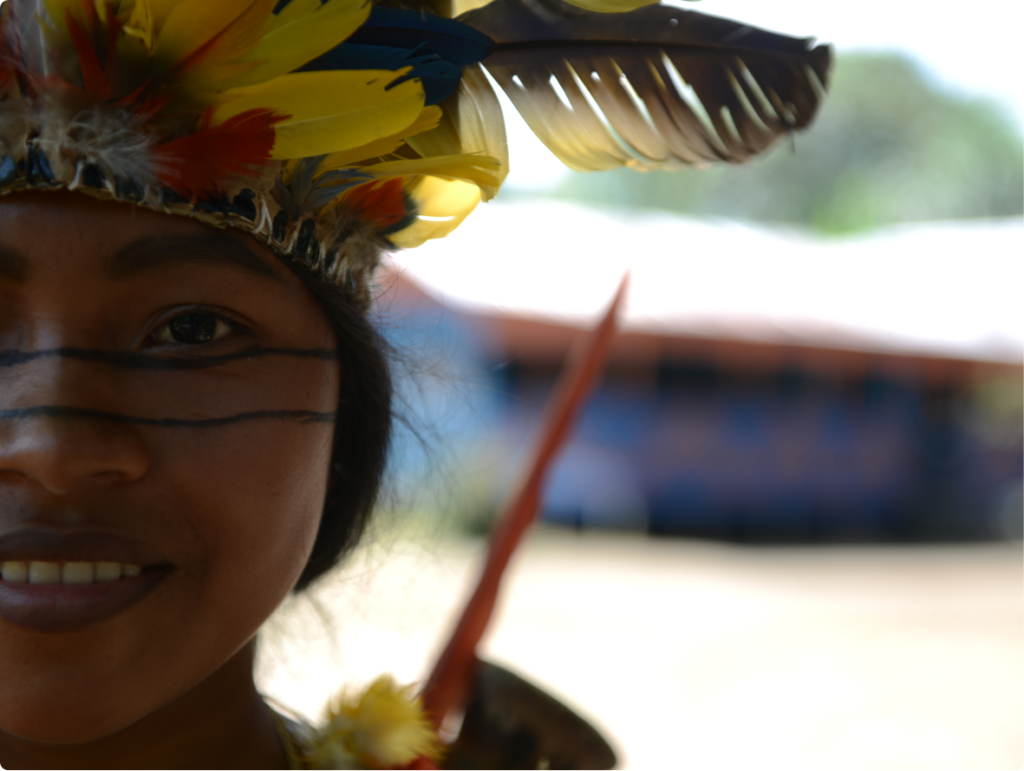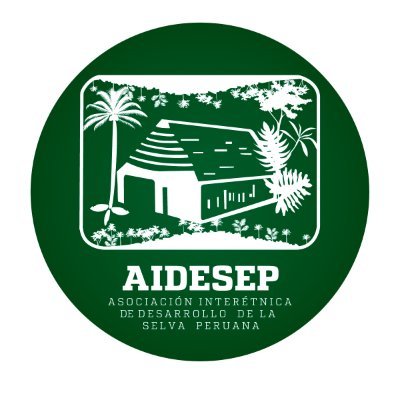Spearheading a rights-based community forest management approach proven to halt deforestation in the Peruvian Amazon.
Rainforest Foundation US’s work in Peru is focused in the Northern and Eastern Amazonian regions of Loreto, and Ucayali.
We support our Indigenous partners in designing, implementing, and leading strategies for rainforest protection and territorial management at scale. By securing access to information, technology, and funding, Indigenous communities are better equipped to defend their lands and influence policies that affect their rights and well-being, particularly in the face of climate change.
In Peru, we have co-created an innovative approach to land titling. Indigenous communities, grassroots organizations, federations, regional governments, and RFUS have joined forces to map and title Indigenous peoples’ lands. This method has already yielded unprecedented results, with titles being delivered in record time. We aim to expand this strategy to other Amazonian regions and neighboring communities adjacent to territories reserved for Indigenous Peoples in Voluntary Isolation (PIACI) to create a corridor for forest protection.
The Amazon is the most dangerous region in the world for environmental defenders, who often face threats to their lives. RFUS collaborates with AIDESEP to implement preventive measures, enabling communities to be better prepared against these threats.
This co-designed program uses data and cutting-edge technology to quickly detect and report illegal deforestation. Through Rainforest Alert, communities are able to regain control of their territories. The program has seen documented success in achieving reduced deforestation and is now scaling up across the region.
RFUS also strengthens relationships among Indigenous communities, Peruvian government officials, and private enterprises to explore opportunities for sustainable production and fair trade. These initiatives aim to enhance collective governance, improve livelihoods, ensure food security, and provide bioeconomic alternatives to vulnerable communities.

More than 60% of Peru is covered by tropical forests, making it the country with the fourth largest area of these vital ecosystems in the world.
94% of these forests—covering over 193 million acres—are part of the Amazon rainforest. It is the second-largest Amazonian national territory, surpassed only by Brazil.
As one of the world’s 17 megadiverse countries (one of a group of nations that holds the majority of Earth’s species and large numbers of endemic species) and home to 10% of plant species, Peru holds importance for the entire planet, playing a pivotal role in addressing both the biodiversity and climate crises. Peru’s forests act as a net carbon sink, effectively capturing more atmospheric carbon than they emit. The Peruvian Amazon alone removes over 57 million tons of carbon dioxide (CO2) from the atmosphere every year.

Nearly 20% of Peru’s population—or six million people—is Indigenous.
The Peruvian government recognizes more than 9,000 distinct Indigenous or native communities representing 55 distinct peoples. Of these, 51 are from the Amazon and four from the Andes, including Quechua, Ashaninka, Shipibo-Konibo, Shawi, Yagua, Achuar, Wampis, among others. At least 20 PIACI (Indigenous Peoples in Voluntary Isolation or Initial Contact), totaling close to 7,500 people, continue to live in the Peruvian Amazon.
Indigenous peoples protect over 44.5 million acres, an area approximately the size of Nebraska. This represents nearly a quarter of the Peruvian Amazon. Nearly 700 communities continue to advocate for their rights to ancestral territories, while 116 have yet to be recognized by the Peruvian state.

Peru’s primary rainforests are among the most deforested in the world.
Between 2001 and 2022, 9.5 million acres of forests were deforested. This represents nearly 5% of its entire forest coverage, an area the size of New Jersey. 6.1 million of those acres were primary forests.
In 2023, Peru had the third highest rate of forest loss in Latin America and the fifth highest worldwide.
The main drivers of deforestation in Peru include illegal logging, land trafficking, illegal mining, and drug trafficking. As the world’s second largest producer of coca, there has been an alarming surge in change of land use from primary forests to coca plantations. In 2022 alone, illegal coca plantations occupied over 46,000 acres of Indigenous peoples’ territories. This growing trend not only devastates the environment but also fuels violence against Indigenous communities. Over the past decade, at least 33 Indigenous leaders have been murdered in the Peruvian Amazon.
Other threats include the encroachment of infrastructure development projects, oil and gas drilling, small-scale agriculture, and palm oil plantations. Peru has emerged as the Latin American country most affected by environmental conflicts related to infrastructure projects, impacting 457 communities.

The Interethnic Association for the Development of the Peruvian Forest is the spokesperson organization for the Indigenous peoples of the Amazon in Peru, which works for the defense and respect of their collective rights. AIDESEP has 109 federations that represent 1,809 communities where more than 650,000 Indigenous men and women live, grouped into 19 linguistic families.

The Organization of the Indigenous Peoples of the Eastern Amazon is the Indigenous peoples’ representative organization in the Amazonian department Loreto, Peru, representing 430 communities. ORPIO engages in protecting their territories, promoting human development, and defending their rights and Indigenous governance.

The Regional Organization Aidesep Ucayali represents 15 Indigenous peoples, 13 subnational federations. ORAU engages in promoting the economic, social, political, and cultural development of the Indigenous peoples that it represents.
Take Action NOW on rainforest protection and Indigenous peoples’ rights
Are you interested in other ways to support us?
Learn more here.



Get news, updates, and stories from the rainforest—straight to your inbox.
Land Acknowledgement
Rainforest Foundation US recognizes and honors the original peoples of the land on which our headquarters is based in Brooklyn, New York: The Ramapough Munsee Lenape, who have cared for these lands and waters for generations. We ask the Ramapough Munsee Lenape people’s permission to be here as their guests and ask their blessing for the good continuation of our work.


How much do you know about the world’s rainforests?
In honor of World Rainforest Day, we’ve put together a quiz to test your knowledge about these vital ecosystems. See how much you really know—and learn a few facts along the way.